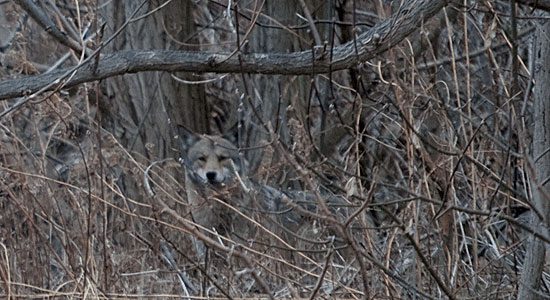Denise Angus says 20 dead cats in her East Toronto neighbourhood she’s seen reported in the past month cannot all be blamed on coyotes.
“I think coyotes are getting a lot of blame for pets that have gone missing and dog and cat remains that are being found,” said Angus, who lives in the Beaches and works in the veterinary industry.
“It’s key to find a way to have some of those questions answered from our community by experts that deal with coyotes each every day and just bring the hysteria down a few notches.”
To help accomplish this, a Coyote Education Evening will be held Sept. 27 at Waverley Baptist Church, 129 Waverley Rd. Experts at the Toronto Wildlife Centre, Coyote Watch Canada, Kew Beach Veterinary Hospital and Toronto police 55 Division will be answering questions and giving residents detailed information about living in close proximity to coyotes and addressing recent safety issues concerning pets.
Angus said there is a lot of misconceptions about coyotes.
“There are a lot of cat remains that we’re finding here in the community and I’m not saying that they’re not coyote related,” Angus said. “But there’s birds of prey in this neighbourhood. Cats can get hit by vehicles when they’re outside.”
Dr. Paul McCutcheon from the East York Animal Clinic said coyote problems are not new but he has not seen many cases involving coyotes and family pets at his clinic.
One of his clients had witnessed her cat being attacked by a coyote which resulted in the family pet’s death, McCutcheon said. Smaller pets may be more likely to be attacked by coyote’s as they are frightened by larger dogs, he said.
Growing concern about some of the comments being made on social media regarding coyotes was another reason Angus felt the need for the information session, she said.
“People are talking about macing coyotes, trapping coyotes and shooting coyotes and relocating the coyotes,” Angus said.
“There are legal implications to using mace in Toronto and those are important factors as well — you can’t go out and trap animals because you’re a vigilante and want to solve the coyote problem.”
Residents have also talked about poisoning coyotes by putting chemicals in pieces of food and leaving it in a ravine, she said.
They should try to understand the broader picture and that coyote’s are part of the wildlife of the area and killing them is not the right thing to do, McCutcheon said.
“I want to see our pets kept safe,” Angus said. “But our wildlife deserves respect and we have to find a balance.”

